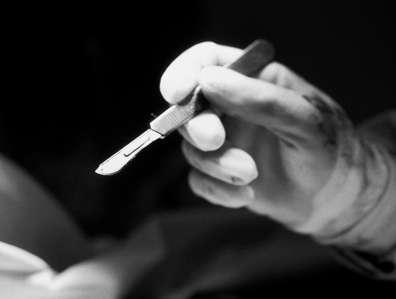Brian gives some excellent context to the world the Jesus was born into, and unpacks the Hebrew background to the concept of sin:
There is no such thing as original sin in the book of Genesis.
Judaism has no such doctrine. Christian theologians, however, read that
theology back into Genesis via the work of Augustine. Original sin
simply isn’t original to the original text. Perhaps an exploration of
Judaism’s understanding of sin might be helpful in this conversation.Sin in Judaism is understood in terms of actions instead of in terms
of human condition. There is no doctrine of original sin nor is there a
theology that suggests humans are basically sinners. Instead human
nature is conceptualized by two different inclinations: the good
inclination (yetser hatov) and the bad inclination (yetser hara).
Humanity has the “free will” to choose either of these inclinations.
This theology of choice is grounded in the Torah. For example, in the
Garden of Eden, primordial humanity was described as being given the
choice between the Tree of Knowledge (i.e. way of death) and the Tree
of Life (i.e. way of life) (Genesis 2:9, 15-15). Similarly, in the
desert, God is portrayed as giving Moses and the people the choice
between life and death – and inviting them to choose life (Deuteronomy
30:11, 15-20). God’s invitation to humanity is the same today as it was
in Scriptural times: “Choose life so that you and your descendants may
live” (Deuteronomy 30:19). Therefore, humanity is given a blank slate
with the freedom to choose their actions, not infused with evilness
that cannot be overcome. Nor is there an evil being like a “devil” that
competes with God’s sovereignty and/or interferes with humanity’s
freedom.
Choice always remains for God’s people. Choosing the good
inclination (yetser hatov) helps humanity to live up to their full
potential as good creations made in the image of G-d (Genesis 1:27).
Conversely, choosing the bad inclination (yetser hara) causes humanity
to fall short of their potential. Acts of falling short are named as
sins and are described in two basic ways: chait and aveyrah.Chait, the most common word translated as sin, is best described as
“missing the mark” or “making a mistake” in the Hebrew Bible (e.g.
Judges 20:16). In short, chait is missing the target. Since the goal of
humanity is to aim at Torah, God’s call, and living according to our
full potential, the stray attempts are what are understood as sins.
Since life is an ongoing process of change and development, human life
is characterized by a continuous activity of shooting arrows as well as
the ability to improve one’s “shot.” In other words, it’s within
humanity’s ability and responsibility to improve. In this perspective,
humanity is not a sinful, depraved being that has no hope of
betterment. Instead, humanity is in a perennial state of freedom with
the responsibility to improve our aim.Aveyrah is the Hebrew term, often translated as sin, which means
“walking off the path.” Like chait, this term means that humanity’s
actions are sinful but not their essence. Humans have the freedom to
choice their path as well as the responsibility to walk on the best
path(s). The Halachah, the collection of Jewish law including the
written and oral Torah, offers a map and guide to the right path(s) to
follow in life. As humanity travels, God supports humanity on our way
so we can be led to the best paths. Moreover, like the term above, it
is ultimately humanity’s responsibility to get on the right path(s).
Such a theology of betterment is commended in Genesis 4:3-7: “Surely,
if you improve yourself, you will be forgiven. But if you do not
improve yourself, sin rests at the door. Its desire is toward you, yet
you can conquer it.” Humanity can choose and follow better paths.
Sins, understood as chait or aveyrah, are atoned for in two different
ways in Judaism. First, sins against people are atoned for when one
reconciles with them with his/her words and deeds. Second, sins against
God are atoned for when one reconciles to God in prayer.

